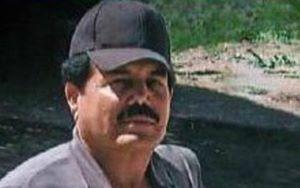Drug cartel clashes in southern Mexico are creating a refugee flow into Guatemala, an Oregon initiative that would require pot businesses to have "labor peace" agreements is poised to make the ballot, and more.

Marijuana Policy
Minnesota Marijuana Regulators Open Applications for First Adult Use Pot Businesses. On Wednesday, the state Office of Cannabis Management (OCM) began accepting applications for preapproval licenses for prospective marijuana businesses verified as involving social equity applicants. The move is designed to provide social equity applicants with an "early mover advantage" by allowing them to move forward with business plans with licenses in hand.
Other sets of applicants must wait for next year when final rules are approved. That means while they, too, can move forward with business plans, they do not have the assurance of a license in hand.
Next in line are licenses for small "microbusinesses," for which only a hundred licenses will be issued: 38 to retailers, 13 to cultivators, and 23 to "mezzobusinesses," or mid-scale growers, as well as various licenses of other sorts. The state has 280 license types for its legal marijuana industry.
"The opening of the application preapproval window is another important milestone in building Minnesota’s cannabis industry," said interim OCM director Charlene Briner. "We continue to encourage potential applicants to carefully review and use the resources we’ve provided on our web site to submit their application."
Oregon Union Initiative to Organize Marijuana Workers Awaits Signature Verification. An initiative campaign organized by the United Food and Commercial Workers (UFCW) Local 555 to make it easier for marijuana industry workers to organize has handed in signatures and is now awaiting verification from state officials that it has qualified for the November ballot.
The United for Cannabis initiative would require marijuana businesses to enter into "labor peace" agreements so that employees interested in unionization can "speak out without fear of retaliation."
The UFCW says it spent more than $2 million on signature-gathering and handed in more than 163,000 raw signatures earlier this month. The measure needs 117,173 valid voter signatures to qualify for the ballot.
"We're extraordinarily confident this will qualify," Local 555 political director Michael said. "We're passing this measure."
Law Enforcement
US Arrests Sinaloa Cartel Head "El Mayo" Zambada and One of El Chapo's Sons, Too. The leader of Mexico's most powerful drug trafficking organization, the Sinaloa cartel, and the son of its imprisoned former leader have been arrested after the private airplane in which they were traveling landed Thursday afternoon on the US side of the border near El Paso, where FBI agents were waiting. Ismael "El Mayo" Zambada Garcia was a long-time collaborator with Joaquin "El Chapo" Guzman in running the cartel before Guzman was extradited to the US and imprisoned here and became the leader of the cartel after Guzman's departure from the scene.
Zambada was arrested along with Joaquin Guzman Lopez, one of El Chapo's sons. Zambada was deceived into getting on the plane, and it seems as if Joaquin Guzman was part of the plot. He had told Zambada they were going on a trip to look at real estate.
Zambada and El Chapo worked together for decades, turning the Sinaloa Cartel into a violent, wealthy powerhouse that funneled tons of heroin, cocaine, methamphetamine, and fentanyl north of the border. While US law enforcement is hailing the bust as a major victory, experts say it is unlikely to have any noticeable impact on the flow of drugs north.
Falko Ernst, a senior analyst at the International Crisis Group, said it was unlikely that the arrests would have a major impact on the smuggling of fentanyl or other drugs from Mexico, since the Sinaloa Cartel was a deeply decentralized organization already.
"We aren't talking about a structure that depends on a few kingpins -- it's very diffuse and resilient to these kinds of hits," Mr. Ernst said. If anything, he said, the move could spark more violence as factions vie for control amid a vacuum of power at the very top. "There's already a bunch of pressure on that structure and there has been a lot of infighting," Mr. Ernst said. "So we're definitely facing a scenario of greater violence, potentially."
Zambada himself expressed similar views in a 2010 interview: "My case should be exemplary, a lesson for everyone," he said, adding: "But after a few days, we learn nothing has changed." Referring to cartel bosses, he said: "Locked up, dead or extradited, their replacements are already out there."
International
Guatemala Says Hundreds of Mexicans Have Fled There to Escape Cartel Violence. Guatemalan authorities said Wednesday that nearly 600 Mexicans have fled across the border into Guatemala to escape violent drug cartel clashes. Guatemalan authorities are working with local governments in Huehuetenango to assist Mexicans "who are escaping conflict between groups that is taking place on the Mexican side," officials said.
A Guatemalan government report said the refugees had fled their homes because of the fighting between cartel factions and because of the resultant lack of food. Those who fled included men, women, children, and the elderly, including one 91-year-old woman who could no longer obtain her diabetes medications.
Mexico's foreign ministry and National Guard have not responded to requests for comment on the issue, and the state security agency for Chiapas, where the refugees resided, said there were no reports from the area.
The Guatemalan border region is contested territory for the Sinaloa and Jalisco cartels, and they have been battling for more than a year along the border there. Some 5,000 people fled another Chiapas region earlier this year amidst cartel violence.
This work by StoptheDrugWar.org is licensed under Creative Commons Attribution-ShareAlike 4.0 International
Add new comment